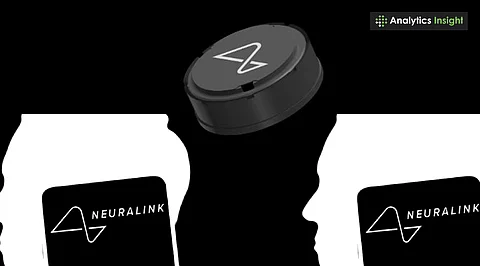

Elon Musk's Neuralink has successfully completed the ninth human implant of its brain chip. This marks a significant advancement in the effort to integrate human thoughts with digital technology. The announcement was made on Musk's platform, X, following the very first implant in January 2024.
The company demonstrated improved operational efficiency by performing two surgeries in one day, showcasing its enhanced clinical readiness. This latest milestone is part of Neuralink's ongoing progress in the brain-computer interface (BCI) field, aiming to assist people with paralysis and potentially elevate the level of human-AI interaction.
The Neuralink brain-computer interface (BCI) technology consists of a coin-sized chip that is implanted in the skull. This chip reads brain signals using ultrathin threads that connect with neural pathways and wirelessly transmits the data to external devices. This allows users to interact with computers or smartphones solely through thought.
Currently, the technology is being used to help individuals with severe physical disabilities, such as spinal cord injuries and amyotrophic lateral sclerosis (ALS). Early trials have shown remarkable results.
With more high-stimulation tests (HSTs) from test patients eight and nine recovering successfully, initial evidence of the chip's benefits is becoming apparent.
After receiving FDA approval in 2023, Neuralink has been steadily expanding its clinical trials. The biotech company aims to have implants placed in 20 to 30 human subjects by the end of 2025. Its ambitious goals include restoring vision, healing, and enabling speech for stroke patients, as well as facilitating telepathic communication.
Elon Musk has frequently mentioned the need to compete with artificial intelligence. He believes that without a direct brain interface, humans risk being surpassed by AI, which is advancing at an unprecedented rate.
Also Read: Elon Musk's Starlink Secures Crucial Approval, Inches Closer to India Launch
The Neuralink brain chip is currently in its early stages, but significant advancements are moving beyond the limitations of traditional brain-computer interfaces (BCIs). Unlike earlier attempts at brain interfaces, Neuralink operates at a fast pace with a clear clinical goal.
The company is committed to building on its initial successes. Users hope that these brain chips will do more than just restore motor functions and cognitive abilities. Many believe it is only a matter of time before the concepts of science fiction become a reality through the Neuralink brain chip.
